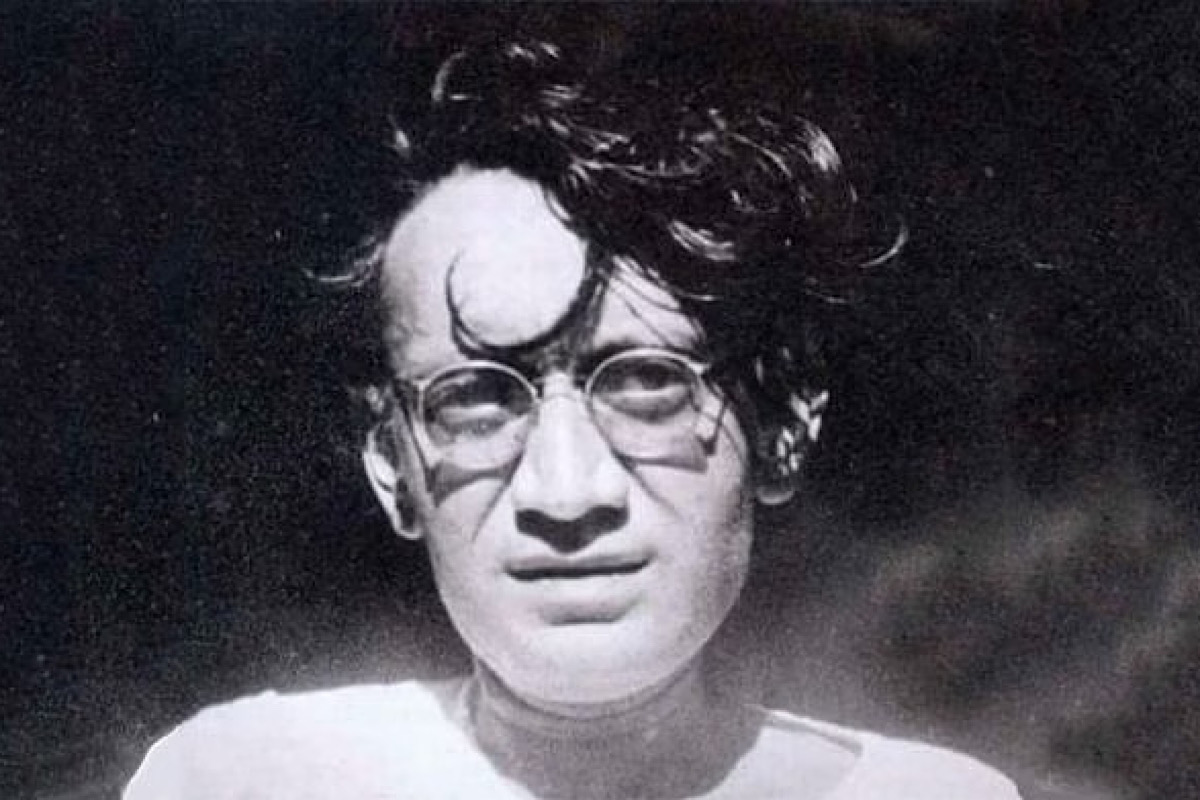Doctor’s guide to paediatric dermatology
Dr Sandipan Dhar's book Sishu Twak Ojana Katha was released today in the presence of Dr Apurba Ghosh, Tota Roy Chowdhury and Rupankar Bagchi in attendance.
As we celebrate his birth anniversary every year on 11 May, we remember the writer who inked society as it was, on paper, in all its humanity and inhumanity. After 112 years since his birth, we still read Manto, and his stories make us tremble even today.

(photo:SNS)
“If you cannot bear these stories then the society is unbearable. Who am I to remove the clothes of this society, which itself is naked. I don’t even try to cover it, because it is not my job, that’s the job of dressmakers.”
— Saadat Hasan Manto
As we celebrate his birth anniversary every year on 11 May, we remember the writer who inked society as it was, on paper, in all its humanity and inhumanity. After 112 years since his birth, we still read Manto, and his stories make us tremble even today. His stories have captured the interest of theatre artists, filmmakers, readers, and writers in both India and Pakistan.
Born in British India, Manto’s love and muse was the city of Bombay. He was the voice of those ostracised from society, who lived on the margins, and the underbelly of the city. He wrote about pimps, prostitutes and gangsters who lived in the cramped chawls of the city. His stories were raw, unpolished, honest, and permeated with a tone of moral indignation. For his writings, Manto was charged with obscenity six times in his life: three times in British India and three times in independent Pakistan.
Advertisement
Several of his works also served as a socio-political critique of the communal and regional divide that was being instigated in pre-independent India. Manto once retorted, “We’ve been hearing this for some time now. Save India from this; save it from that. The fact is that India needs to be saved from the people who say it should be saved.”
Being a first-hand witness of the partition of India and being forced by circumstances to move to Lahore, Manto is one of the best-known writers who penned the aftermath of the partition, the inhumanity and madness that followed after the rupture, when man had lost all his sensibility and humanity. Manto’s works serve as an unofficial history, recording the effect of the division that was visible on the streets—the historiographic account that runs parallel to the official history in textbooks that celebrate the birth of two nations.
His satirical short story Toba Tek Singh brought out the psychological trauma that the partition inflicted on people from both sides of the border, the trauma of forced migration, and coping with the fact that the place you once called home is now not yours, and the place that is now your home will never, in essence, be yours. Similarly, in his story, Tithwal ka kutta, he questioned the arbitrary nature of man-made divisions of land and people and the senselessness of it when a soldier in the text remarks, “Even dogs will now have to decide if they are Indian or Pakistani.” Manto did not only capture the psychological aspect but also the atrocious sexual violence that followed the moment of rupture in stories like Khol do and Thanda Gosht.
The partition may be over, but the division is not. The communal divisions that stirred the partition are still very much present; the ‘us’ versus ‘them’ and the sense of ‘othering’ are still prevalent, and so we still read Manto, the essence of his works still relevant.
What makes his stories immutable is his unfiltered documentation of human emotions and psyches. He wrote, “To tell you the truth, the world seemed full of sad people—those who slept on the uncovered stoops of shops as well as those who lived in high-rise mansions. The man who walks about on foot worries that he doesn’t have decent shoes to wear. The man who rides the automobile frets that he doesn’t have the latest model car. Every man’s complaint is valid in its own way. Every man’s wish is legitimate in its own right.” It’s hard not to resonate with the harsh reality he laid bare for us with a statement that keeps getting more real with time.
Today, as Manto still wonders in his grave if he was the greatest short-story writer, we remember his words, “…and it is also possible that Saadat Hasan dies, but Manto remains alive.” We would like him to know that Manto is still alive and lives in the middle, between India and Pakistan, between rationality and madness; he lives in the conscience of society.
Advertisement